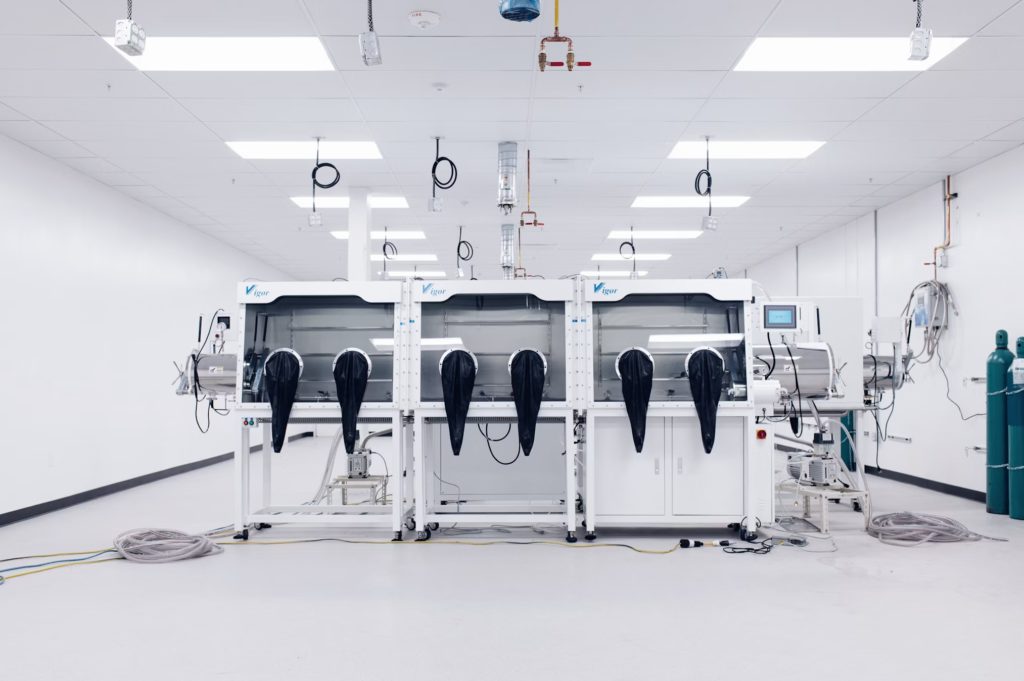Northvolt’s $20 billion battery plan suffers summer of setbacks

Northvolt AB’s ambition to be Europe’s global battery company has attracted about $20 billion in investment and public grants. It’s a challenging goal, as a summer of operational and financial setbacks have shown.
On Tuesday, the Swedish electric-vehicle battery maker closed down a Californian unit, Cuberg, that it acquired only three years ago, and shifted its research and development efforts to its home country.
The switch comes a month after the money-losing manufacturer said it could ramp up its new factories more slowly as clients adjust to lackluster growth in EV sales.
Northvolt, founded by two former Tesla Inc. managers about eight years ago, is also facing intensifying competition from China’s battery makers. Rivals such as BYD Co. have improved their offering of cheaper lithium-iron-phosphate batteries, broadening the types of vehicles they can power.
While some of these pressures are global, they’re setting back Europe’s hopes of cultivating a homegrown supply chain, and raise questions about Northvolt’s next financing moves.
Northvolt spokesman Matti Kataja didn’t immediately respond to a request for comment.
Scaling up
The company’s flagship factory, Northvolt Ett, sits just outside the town of Skelleftea near the Arctic Circle. The site delivered its first batteries in May 2022, but scaling up production has been far from smooth.
BMW AG backed out of a €2 billion ($2.1 billion) order in June, while Volkswagen AG’s Scania complained of slow deliveries earlier this year.
Leif Ostling, who led Scania until about a decade ago, described the Northvolt venture as “a big risk project” and said deliveries to the truckmaker are “certainly not at the levels” the company had expected.” Speaking in an interview, he added: “Things are a little bit better now and it must gradually get better. But you can see how BMW has pulled out.”
The Skelleftea site, with a staff of more than 3,500, has also had health and safety issues. Earlier this week Northvolt defended its record following a report by state broadcaster Swedish Radio that the battery maker had put staff at risk from high levels of ammonia — something the company and authorities have denied.
Northvolt has also faced scrutiny after two workers died at its premises. The police separately launched an investigation into deaths outside of the workplace after a further four people, who all worked at the Skelleftea factory, lost their lives — and neither the police nor the coroner’s office have so far been able to establish causes of death. Three of them died at home and the fourth person drowned last month.
Northvolt’s Kataja said at the time that local police should be clear about the circumstances of the case, “to avoid speculation as the information obviously creates concern and leads to further spreading of rumors.”
Financing questions
The operational problems and a slow market for listings have meant plans for an initial public offering in Sweden are delayed until 2025, Bloomberg News reported in May.
In response to reports in local media about its next funding round, Northvolt’s Kataja this week told business daily Dagens Industri that the company was still working on a larger capital raise. “We’re seeing strong support from our shareholders as well as our customers, and we plan to return with more information before the end of the year,” he said.
Those shareholders include some of the biggest names in the investment and automotive industries, including Volkswagen, Goldman Sachs Asset Management, Baillie Gifford, BMW and Vargas Holding — the green investment vehicle of Northvolt co-founder Harald Mix.
There is also a lot at stake on the debt side of Northvolt’s balance sheet. In January, the company secured a $5 billion green loan via offtake contracts — a structure regularly used in commodities to arrange sales in the future — with customers such as BMW.
Northvolt’s Kataja told Bloomberg via email in July that the canceled order from BMW had no material impact on the terms of the loan. There are further multibillion-dollar packages in the works — blending debt, convertible instruments and grants — to finance the forthcoming Northvolt Drei factory in Germany and Northvolt Six in Canada. Some of the firm’s commercial facilities are covered by guarantees from various public institutions including the Swedish National Debt Office and the European Commission.
Still, the struggle to ramp up production has fed through into Northvolt’s financial results. The manufacturer’s operating loss more than tripled to $1.03 billion last year, according to an annual report released in July. Chief executive officer Peter Carlsson said the company had dealt with “multiple challenges and setbacks” while seeking to scale up output at Ett.
These challenges will be navigated by a top team in flux. Chief finance officer Pia Aaltonen-Forsell joined the firm earlier this month to replace Alexander Hartman, who became chief transformation officer.
The company is also losing its chairman, veteran industry leader Jim Hagemann Snabe, who won’t return after six months of sick leave, the company said in June. The Dane had been picked for the position in 2022, in an effort to build a more independent board with an industrial track record ahead of a potential IPO. Existing board member Tom Johnstone is interim chairman.
For Ostling, who now runs a Swedish think tank focused on the inefficient use of taxpayer money, the production delays and factory setbacks are hurting Northvolt’s reputation on the capital market.
“There’s just too much risk,” he said. “And it’s the Swedish state and the EU that will have to take on a large part of that.”
(By Charles Daly and Rafaela Lindeberg)
{{ commodity.name }}
{{ post.title }}
{{ post.date }}




Comments